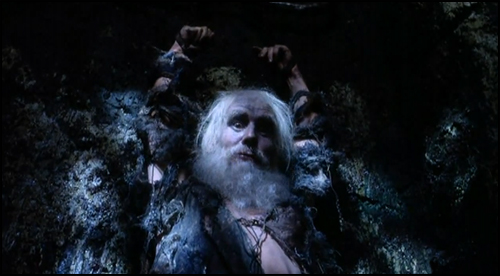Lived experience
|
Lived experience
/lɪvd ɪksˈpɪərɪəns/ (n.)
Knowledge about the world one gains, first-hand, by living through it. Knowledge that is joyously subjective, and not the quasi-objective, pseudo-knowledge by which we are all systematically indoctrinated through social institutions such as the education system, government and the calculating fingers of the media. Each person’s “lived experience” is necessarily unique, and taken ad absurdum, literally ineffable to any other person. As Ogden Nash put it:
We’d free the incarcerate race of man
That such a doom endures
Could only you unlock my skull,
Or I creep into yours.[1]
Can get confusing when you consider one’s “lived experience” includes being indoctrinated through social institutions like school, university, work and, well, people who witter on about lived experiences all the time. Like the JC.
In any rate, subjective, and — where, thanks to one or more intersecting marginalisations, your own lived experience has not been a happy one — a justification for prioritising your ghastly experience over those of others you adjudge to have been more fortunate than your own when, as a tenured academic, you find yourself lecturing more fortunate people about how badly you have been treated.
It’s a bit circular like that.
Relevance to the conversation
An unusual standpoint, is always a valuable perspective to bear in mind when the community discusses, or designs common utilities. The Dutch — being the tallest nation on earth, should consider the lot of those possessed of shorter statures when designing bookshelves.
The standpoint of short people is unlikely, past adolescence, to change. It is a permanent fact of biology. This seems equally so of standpoints informed not by physiognomy but history. Especially historical grievance. As we remark below, one can re-narrate, but not change, history. If your great grandfather was a slave, or kept them, there is nothing you can really do about that now. Apologies will sound — and be — disingenuous.
The question arises who is responsible for redressing that grievance, and what they can do to redress it.
Lived experience as a finite game
James Carse’s fabulous Finite and Infinite Games provides a great prism for framing these battles between the past and present. For what is a “lived experience”, a “grievance” or a “standpoint”, if not an articulation of history?
The future contains only as-yet unlived experiences. There are no grievances there. Our standpoints, the margins and their intersections are unknown.[2]
Being historical, an already-lived experience is permanent, and set in stone. It cannot be moved. It cannot be removed. It cannot be compensated for. It cannot be denied. It becomes a monument. A shibboleth. A sacred prophecy. But it remains our own imaginative construction.
We are autobiographers. Literally, we talk our own book. We choose by which significant events we define the trajectory of our own lives. We build our own memorials. We choose to live beneath their shadows. But our present is a function of every point in our past, not just the ones on which it suits us to now fixate as we construct our personal narrative.
To adopt — some might say “colonise” someone else’s personal narrative is the empathetic stance: to step into their shoes, to take sides, to exalt them and perpetuate their grievance. Empathy is to exalt history, whilst pretending to despise it.
But, look: standpoints iterate. As the present moves through space-time, we lay down the tracks of future, each new decision we make contributes to our lived experience. We update our standpoints — it is only by refusing to update our standpoint that we can optimise our grievance. There are people whose professional interests are served by optimising their own grievances. They are not fun people. They probably don’t have much fun. Don’t be like that. The decisions we, and our ancestors made, and had made about us, fall ever further away in time and significance. It is an inverse square. Keep moving forward, and they fall further away.
The infinite game counsels us to look at where we are, see what we’ve got now and how to make the best of it. It focuses on the decisions we can influence now and the possibilities of the future. It regards the past as informational and instructive, not constraining. If I once hit my thumb with a hammer, I know to be careful next time I use a hammer. It does not make me forever a victim of hammer abuse.
See also
References
- ↑ Ogden Nash, Listen..., reprinted in Candy is Dandy: The Best of Ogden Nash
- ↑ Unless you accept the data formalist’s stance that the universe is a clockwork, causal determinacy is absolute, and therefore the future is a linear extrapolating of the past. In which case, so is complaining about it. Nothing can be done, and no-one is to be blamed: we are “as flies to wanton boys”.
